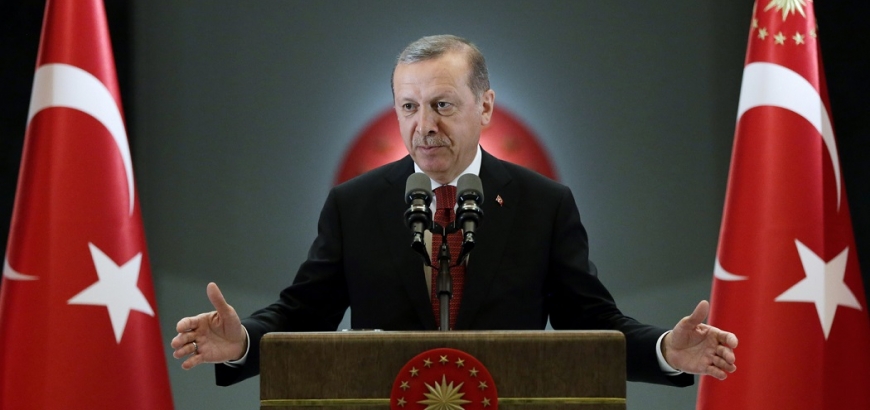On Thursday, Turkish President Recep Tayyip Erdogan called for the restoration of the secret “Adana agreement” — signed between Turkey and Syria in 1998 — in a speech he delivered during his participation in activities for the Turkish Military Academy in the capital Ankara.
The agreement, reached 20 years ago, came after tensions that affected the relations between Ankara and Damascus, and its signing was a turning point from the height of the tension towards strategic cooperation, before relations became tense again after the eruption of protests in Syria in 2011 and Turkey’s support for the opposition.
The Adana agreement stipulated that Syria would cooperate fully with Turkey in “fighting terrorism” across the border, and that Damascus would end all forms of support for the Kurdistan Workers’ Party (PKK), evict its leader Abdullah Ocalan from its soil, close its bases in Syria and Lebanon, and prevent PKK fighters from infiltrating Turkish territory.
Entry Onto Syrian Land
The agreement also stipulated that Turkey maintained its natural right to self-defense, and in demanding “just compensation” for lost lives and property, if Syria did not stop its support for the PKK.
The agreement also gave Turkey the right to “pursue terrorists” into Syria up to a depth of five kilometers, and to “take the necessary security measures if its national security is endangered.”
According to the agreement, the border disputes between the two countries ended with the signing of the agreement, with neither having “claims or rights due” in the other’s territory.
Analysts see the two military operations, which Turkey has carried out in Syria (Olive Branch and Euphrates Shield), as being based on the item that stipulated Turkey’s right to “pursue terrorists” into Syrian territory, as Ankara views the Kurdish People’s Protection Units (YPG) as an extension of the PKK in Syria.
At the end of the 1990s, Ankara expressed major aggravation at the Assad regime for its support of the PKK, and Turkey began beating the drums of war by carrying out exercises with NATO in the region, as well as independent mobilizations on the border with Syria, according to the Washington Institute.
The center added that in order to face Ankara’s threats, Syria agreed to the Adana protocol in October 1998 and closed the PKK bases on its territory. It arrested hundreds of PKK fighters, in addition to exiling Ocalan from Syria, which led to his arrest in 1999 in Kenya.
This article was translated and edited by The Syrian Observer. Responsibility for the information and views set out in this article lies entirely with the author.


